New Rule to Check Presence of VBS in Installable Packages RTS-2561
In response to Microsoft’s plans to deprecate the VBS scripting engine in future Windows 11 releases (with it becoming an optional feature), RayQC Advanced now includes a new rule to help ensure compatibility with newer versions of Windows 11. This rule checks whether a package contains VBS (Visual Basic Script) files, providing an early warning for any potential issues before upgrading or deploying to environments running newer Windows 11 editions.
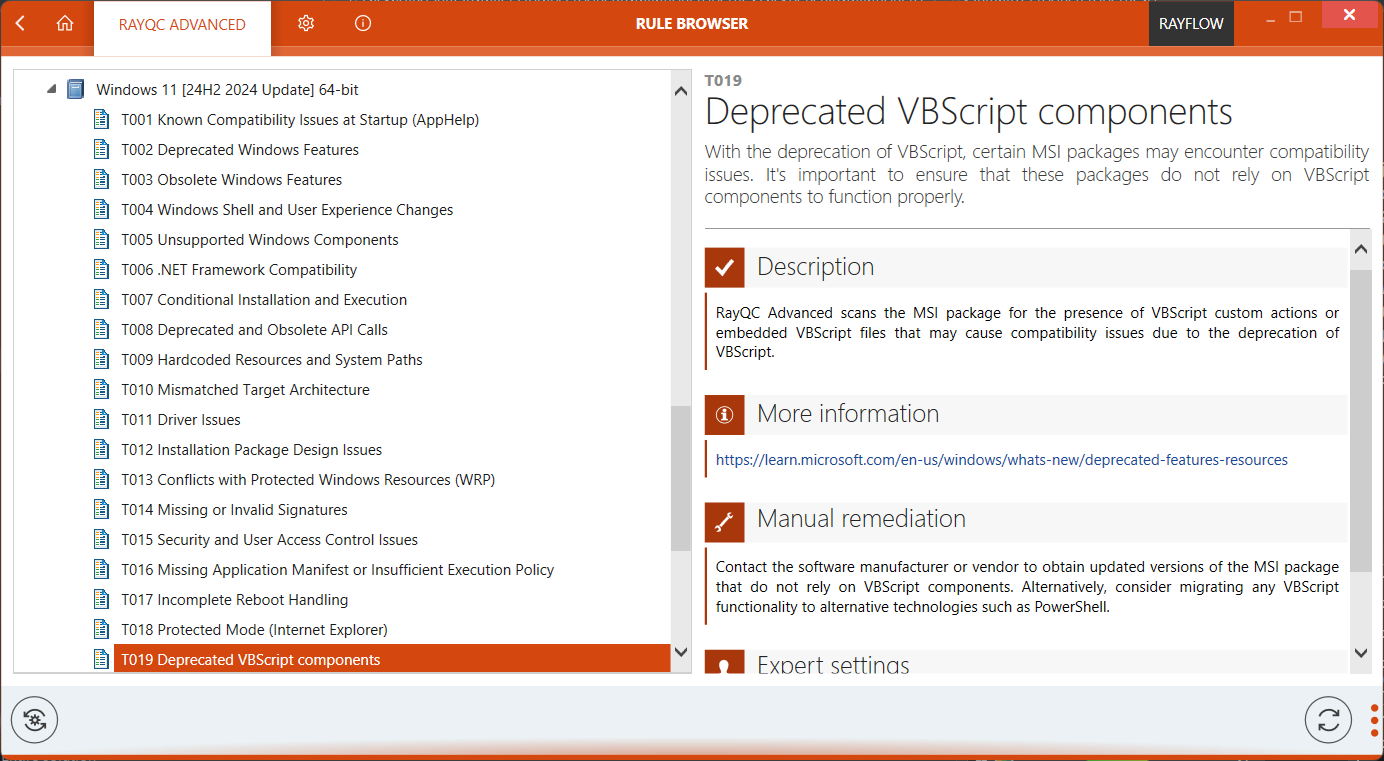
The new rule that belongs to the Windows 11 ruleset
Package Contents View with Filtering and Search RTS-2555 ZEN-21125 ZEN-25769
A new feature has been added to RayQC Advanced to provide users with a comprehensive view of all extracted package contents, enabling detailed inspection and search capabilities across multiple packages and tables. The "Package Contents" screen serves dual purposes: allowing both single and multiple package views. The screen is equipped with advanced filtering, searching, and grouping functionalities, making it easy to inspect package details such as registry keys, files, and other extracted data.
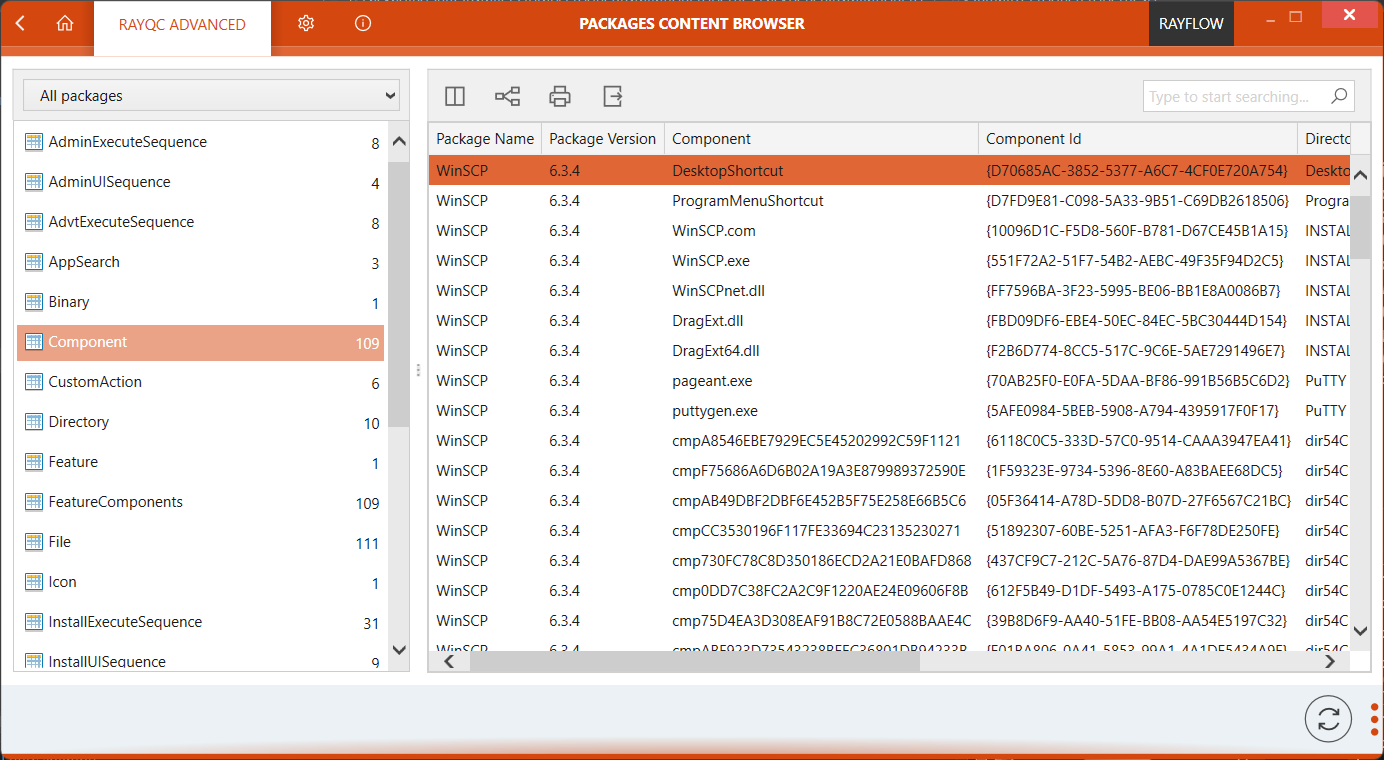
Package Content Browser (for all packages) is now available. It is similar to the PackDesigner table viewer in RayPack.
Import of Legacy Setups with Windows Sandbox RPK-4632
RayQC Advanced now supports Windows Sandbox for converting legacy formats (mostly executables) into packages that can be imported into the library. This extends the repackaging options beyond the previous support for Workstation and vSphere + Hyper-V environments. This new capability allows users to leverage Windows Sandbox for a lighter and more isolated environment for rapid conversion and testing, even for non-MSI setups..
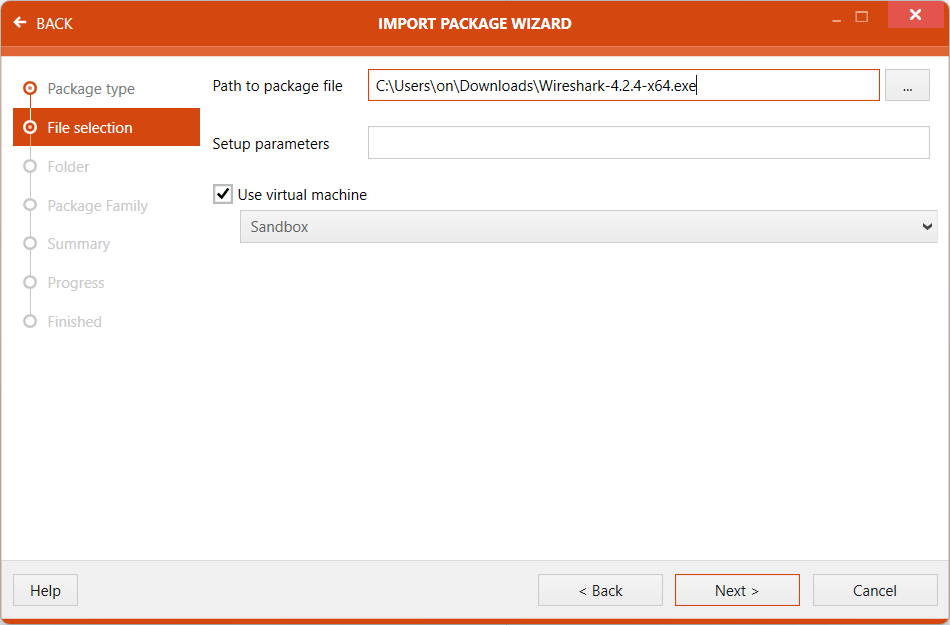
It is now possible to use the Windows Sandbox as a repackaging machine.
With Windows Sandbox, you can import legacy packages more efficiently and securely, without the need for a full virtual machine setup.
|
Note: This feature requires RayPack to be installed on the same machine as RayQC Advanced. |
Support for Citrix App Layering packages
RayQC Advanced now supports Citrix App Layering packages. .laypkg files can be now imported into the library and it is possible to perform testing for potential collisions across files, registry entries, and identifiers.
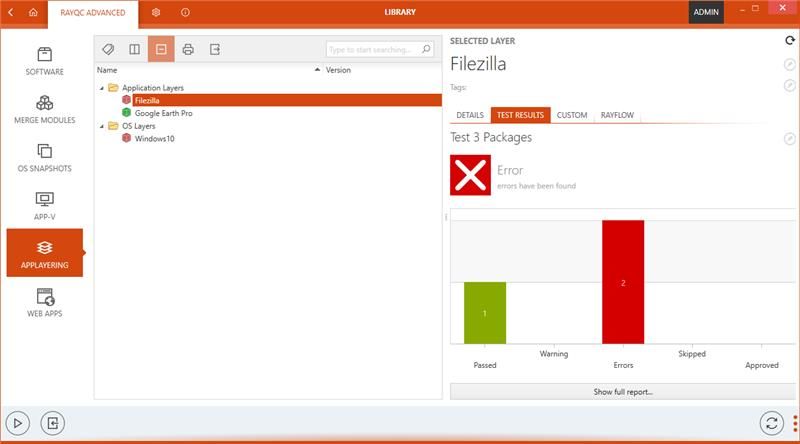 Single layer results |
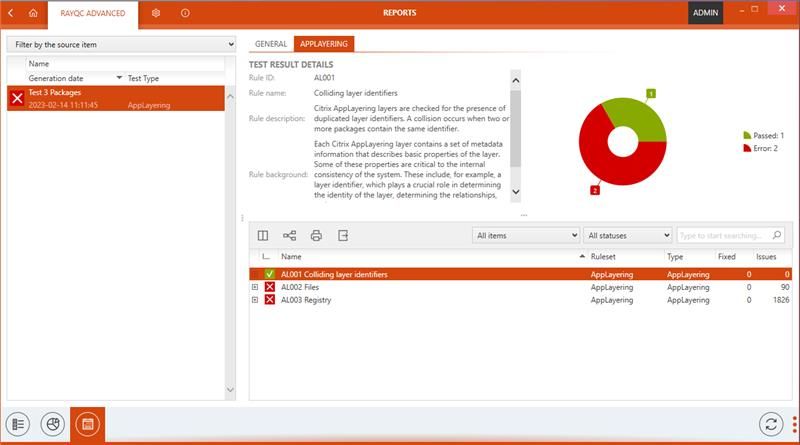 Detailed report |